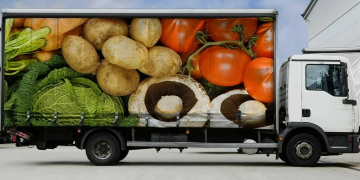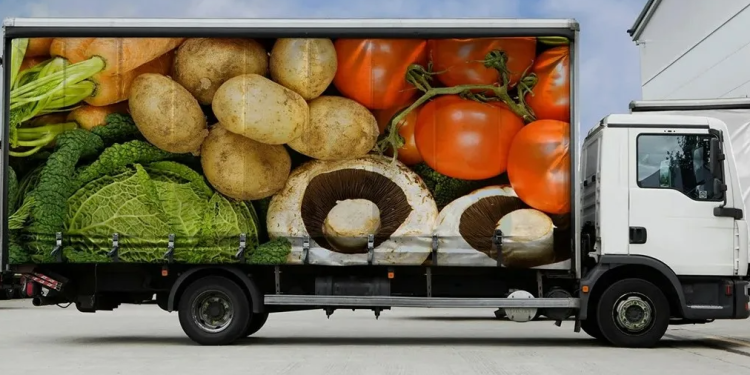#Agriculture #Importation #KrasnoyarskKrai #FoodSafety #RegionalTrends #Farming #CropImports #CentralAsianProduce #ConsumerPreferences #Rosselkhoznadzor
In the first half of 2023, Krasnoyarsk Krai saw a significant increase in the importation of fruits and vegetables, totaling over 23,000 tons of imported produce. This article explores the latest data from regional authorities and highlights the countries of origin, popular imports, and issues related to food safety. Farmers, agronomists, agricultural engineers, farm owners, and agricultural scientists will find valuable insights into the changing agricultural landscape in the region.
The agricultural landscape in Krasnoyarsk Krai, Russia, is undergoing a noticeable transformation in 2023. With the importation of more than 23,000 tons of produce, including 18,000 tons of fruits and vegetables, the region is experiencing a surge in foreign agricultural products. According to the regional branch of Russia’s agricultural watchdog, Rosselkhoznadzor, these imports are primarily from neighboring countries such as Uzbekistan, Kazakhstan, Kyrgyzstan, China, Armenia, Turkey, and Tajikistan. This influx of foreign produce has sparked interest and concern among stakeholders in the local agricultural sector.
Country of Origin: Among the countries contributing to this increase in imports, Uzbekistan, Kazakhstan, and Kyrgyzstan stand out as major players. These Central Asian nations have been key suppliers of fresh fruits and vegetables to Krasnoyarsk Krai. China, Armenia, Turkey, and Tajikistan have also played significant roles in meeting the growing demand for imported produce.
Popular Imported Products: Certain products have captured the attention of consumers and have become staples in the Krasnoyarsk Krai market. Imported watermelons, tomatoes, apples, grapes, carrots, onions, radishes, and other crops have gained significant popularity. Additionally, nuts, legumes, malt, seedlings, and planting materials have been imported to cater to the diverse agricultural needs of the region.
Food Safety Concerns: While the increase in imported produce has broadened the range of options available to consumers, it has also raised concerns about food safety. According to Rosselkhoznadzor, 479 tons of imported products were found to be contaminated and were confiscated in compliance with Russian legislation. Ensuring the safety of imported produce remains a priority, with stricter inspections and measures being implemented to protect consumers and the local agricultural industry.
The surge in imported fruits and vegetables in Krasnoyarsk Krai in 2023 is a reflection of evolving consumer preferences and market dynamics. While foreign produce has brought diversity and new choices to the region’s consumers, it has also highlighted the importance of stringent quality control and food safety measures. Farmers, agronomists, agricultural engineers, farm owners, and agricultural scientists must stay informed about these trends and challenges to adapt and compete effectively in this changing agricultural landscape.































